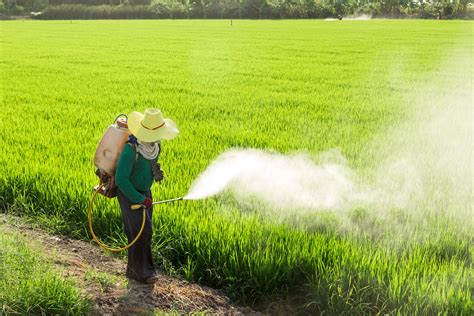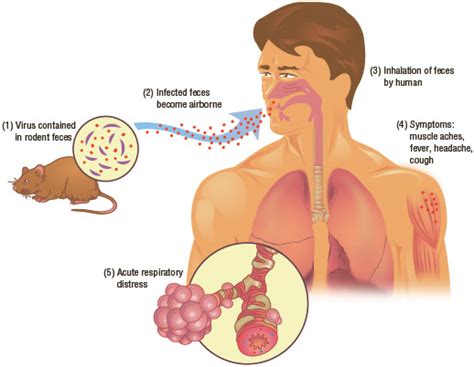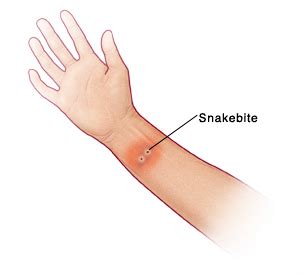
Pesticide Poisoning
Understanding the dangers of pesticide poisoning
Pesticides are commonly used substances in agriculture and gardening to control pests and increase crop yields. While they can be effective in keeping pests at bay, it is crucial to understand the potential dangers associated with pesticide poisoning. Exposure to pesticides can have serious health implications for humans and the environment. In this blog post, we will delve into the various risks and long-term effects of pesticide poisoning, and discuss how to prevent such incidents.
When individuals come in contact with pesticides, either through direct exposure or indirect means like contaminated food or water, they face the risk of pesticide poisoning. The symptoms may vary depending on the type of pesticide, the level of exposure, and the duration of contact. It is essential to be aware of the common signs of pesticide poisoning to ensure quick response and appropriate medical intervention.
Common symptoms of pesticide poisoning include nausea, vomiting, headaches, dizziness, abdominal pain, and difficulty in breathing. Skin rashes or irritation, eye redness or watering, and muscle twitches are also potential indicators of pesticide exposure. These symptoms may appear immediately after exposure or develop gradually over time. It is important to note that some pesticides can have long-term health effects, even with low levels of exposure.
- Understanding the various dangers associated with pesticide poisoning is crucial to taking preventive measures and protecting your health.
- Common symptoms of pesticide poisoning include nausea, vomiting, headaches, and skin irritation.
- Immediate actions should be taken when exposed to pesticides, such as removing contaminated clothing and seeking medical assistance.
- Long-term health risks of pesticide poisoning can include cancer, reproductive issues, and neurological disorders.
- Preventing pesticide poisoning involves proper handling, storage, and disposal of pesticides, as well as using alternative pest control methods whenever possible.
| Type of Pesticide | Potential Health Risks |
|---|---|
| Insecticides | Neurological disorders, respiratory problems, skin and eye irritation |
| Herbicides | Cancer, reproductive issues, kidney and liver damage |
| Fungicides | Respiratory problems, eye irritation, allergic reactions |
Preventing pesticide poisoning requires a combination of awareness, caution, and responsible handling. Always read and follow the instructions provided on pesticide labels. Use appropriate protective clothing, such as gloves and masks, when handling pesticides. Keep children and pets away from treated areas, and store pesticides in their original containers, out of reach from curious hands.
In conclusion, understanding the dangers associated with pesticide poisoning is essential for everyone, from farmers and gardeners to consumers. By being aware of the risks, recognizing the symptoms, and taking preventive measures, we can protect ourselves and the environment from the harmful effects of pesticide poisoning.
Common symptoms of pesticide poisoning
Pesticides are widely used to control pests and insects in our homes, gardens, and farms. However, it is important to be aware of the potential health risks associated with pesticide exposure. Pesticide poisoning occurs when a person comes into contact with or ingests pesticides, leading to various symptoms that can range from mild to severe. Understanding these common symptoms is crucial for early detection and seeking timely medical assistance.
The symptoms of pesticide poisoning may vary depending on the type of pesticide, the amount of exposure, and the individual’s sensitivity. Common symptoms include headaches, dizziness, nausea, vomiting, abdominal pain, muscle weakness, blurred vision, skin rashes, and difficulty breathing.
In some cases, individuals may also experience more severe symptoms such as seizures, loss of consciousness, and even death if the exposure is significant. It is important to note that symptoms may not appear immediately after exposure and can range from immediate to delayed onset.
- Headaches: Persistent or severe headaches can be a sign of pesticide poisoning. It is important not to dismiss frequent headaches as they may indicate exposure.
- Dizziness: Feeling lightheaded, dizzy, or experiencing balance problems could be an indication of pesticide poisoning.
- Abdominal pain: Unexplained stomach cramps, discomfort, or pain should not be ignored, especially if accompanied by other symptoms.
- Nausea and vomiting: Feeling sick to your stomach, queasiness, and vomiting are common symptoms that may be present in pesticide poisoning cases.
- Muscle weakness: Experiencing weakness, tremors, or difficulty controlling muscles can be a warning sign of pesticide exposure.
| Immediate Symptoms | Delayed Symptoms |
|---|---|
| Headaches | Respiratory issues (coughing, wheezing) |
| Dizziness | Neurological problems (memory loss, confusion) |
| Nausea and vomiting | Gastrointestinal issues (diarrhea, abdominal pain) |
| Eye irritation | Reproductive and fertility problems |
| Skin rashes | Developmental delays in children |
If you suspect pesticide poisoning, it is crucial to take immediate action. Contact a poison control center or seek medical help. The medical professionals will provide the necessary guidance and treatment, which may include supportive care, decontamination, and monitoring of vital signs.
Prevention is always better than cure when it comes to pesticide poisoning. By taking precautionary measures and following safe handling practices, you can significantly reduce the risk of pesticide exposure. Make sure to read and follow the instructions on pesticide labels, wear protective clothing, gloves, and masks when handling pesticides, and store them in locked cabinets away from children and pets.
Remember, being aware of the common symptoms of pesticide poisoning and taking appropriate actions can protect you and your loved ones from potential harm. Stay informed, stay safe!
Immediate actions to take when exposed to pesticides
When it comes to pesticide exposure, it is crucial to take immediate actions to mitigate the risks. Pesticides are chemicals that are used to control pests, but they can also be harmful to humans if not handled properly. If you find yourself exposed to pesticides, here are some important steps to take:
1. Remove contaminated clothing: If you have come into contact with pesticides, it is important to remove any contaminated clothing as soon as possible. Pesticides can be absorbed through the skin, so taking off your clothes can help reduce further exposure.
2. Wash thoroughly: After removing your clothing, it is essential to wash your body thoroughly with soap and water. Pay close attention to areas that may have come into direct contact with the pesticides, such as your hands, face, and any exposed skin. This can help remove any traces of the pesticide and minimize the risk of absorption.
3. Seek medical attention: Regardless of the severity of your symptoms, it is always recommended to seek medical attention after pesticide exposure. Even small amounts of exposure can have adverse effects on your health, so it is best to consult a healthcare professional who can provide appropriate guidance and treatment.
4. Contact poison control: In case of pesticide exposure, it is crucial to contact your local poison control center or emergency services. They can provide immediate advice on what actions to take based on the specific pesticide involved and the severity of the exposure. It is essential to have this information readily available in case of emergencies.
5. Document the incident: To ensure proper follow-up and documentation, it is recommended to keep a record of the incident. Include details such as the date and time of exposure, the type of pesticide involved (if known), the symptoms experienced, and any actions taken. This information can be helpful for medical professionals in determining the best course of action and for future reference if any long-term health issues arise.
Remember, swift action is key in minimizing the risks associated with pesticide exposure. By taking these immediate actions, you can help protect your health and well-being. Always prioritize safety when working with or around pesticides to reduce the chances of exposure and its potential consequences.
Long-term health risks associated with pesticide poisoning
Exposure to pesticides can have detrimental effects on human health, leading to various long-term health risks. Pesticides are commonly used to control pests and enhance crop production, but their toxic nature can pose significant hazards to both humans and the environment. It is essential to understand the potential long-term health risks associated with pesticide poisoning to raise awareness and promote safer practices in pesticide use.
One of the primary long-term health risks of pesticide exposure is the development of chronic diseases. Studies have shown that prolonged exposure to certain pesticides can increase the risk of developing conditions such as cancer, Parkinson’s disease, and respiratory disorders. These hazardous chemicals can accumulate in the body over time, leading to cellular damage, disruption of bodily functions, and the onset of chronic illnesses.
Additionally, pesticide poisoning has been linked to reproductive and developmental disorders. Certain pesticides have been found to disrupt hormone balance, leading to fertility issues in both men and women. Moreover, exposure to these toxic substances during pregnancy can result in birth defects, developmental abnormalities, and even miscarriages. The delicate nature of the developing fetus makes it particularly susceptible to the harmful effects of pesticides.
| Potential Long-Term Health Risks: | |
|---|---|
| Cancer: | Some pesticides have been classified as carcinogens, increasing the risk of developing various types of cancer. |
| Neurological Disorders: | Pesticide exposure has been associated with an increased likelihood of developing neurodegenerative diseases such as Parkinson’s disease. |
| Respiratory Disorders: | Inhalation of pesticides can lead to respiratory problems, including asthma, chronic bronchitis, and other respiratory conditions. |
| Reproductive Disorders: | Pesticides can disrupt hormonal balance, resulting in fertility issues and complications during pregnancy. |
| Developmental Abnormalities: | Exposure to pesticides during pregnancy can cause birth defects and developmental abnormalities in infants. |
Furthermore, prolonged exposure to pesticides can have a negative impact on the immune system. These toxic substances can weaken the body’s defense mechanisms, making individuals more susceptible to infections, allergies, and autoimmune disorders. The immune system plays a crucial role in maintaining overall health, and any impairment caused by pesticide poisoning can have far-reaching consequences.
It is vital to adopt preventive measures to minimize the risks associated with pesticide poisoning. These measures include utilizing non-chemical pest control methods whenever possible, wearing appropriate protective clothing during pesticide application, and following guidelines for safe handling and storage of pesticides. Promoting organic farming practices and supporting sustainable alternatives can also contribute to reducing pesticide usage and its associated long-term health risks.
Preventing pesticide poisoning in the home and garden
Preventing pesticide poisoning in the home and garden is of utmost importance, as exposure to harmful pesticides can have serious health effects. It is essential to take proactive measures to ensure the safety of you and your loved ones. By following a few simple guidelines, you can minimize the risk of pesticide poisoning and create a healthier environment for everyone.
1. Choose safer alternatives: Instead of relying on chemical pesticides, consider using natural or organic methods to control pests in your home and garden. These alternatives are often just as effective and pose much less risk to human health and the environment.
2. Read and follow instructions: Always carefully read the labels and instructions on pesticide products before use. Make sure to understand the proper usage, application methods, and safety precautions to take. If you have any doubts or questions, consult with a professional or seek guidance from a local agricultural extension office.
3. Use protective gear: When handling and applying pesticides, it is crucial to protect yourself by wearing appropriate safety gear. This includes gloves, goggles, a long-sleeved shirt, long pants, and closed-toe shoes. These protective measures can significantly reduce the risk of skin contact, inhalation, or accidental ingestion.
4. Store pesticides properly: Ensure that pesticides are stored in their original containers with tightly sealed lids. Keep them out of reach of children and pets, preferably in a locked cabinet or shed. It is also essential to store pesticides away from food, water sources, and other household products to avoid contamination.
5. Dispose of pesticides safely: When disposing of empty pesticide containers or unused products, follow the instructions provided by the manufacturer or consult with your local waste management facility. Do not pour pesticides down the drain or throw them in the regular trash, as they can pollute water sources and harm the environment.
| Signs of Pesticide Poisoning | Immediate Actions to Take |
|---|---|
|
|
Frequently Asked Questions
Question 1: What are the dangers of pesticide poisoning?
The dangers of pesticide poisoning include acute toxicity, which can lead to nausea, vomiting, dizziness, and even seizures. Prolonged exposure to pesticides can also cause chronic health effects such as cancer, reproductive problems, and damage to the nervous system.
Question 2: What are the common symptoms of pesticide poisoning?
The common symptoms of pesticide poisoning may vary depending on the type of pesticide and level of exposure. However, common symptoms often include headache, nausea, blurred vision, muscle weakness, and breathing difficulties.
Question 3: What immediate actions should I take if exposed to pesticides?
If exposed to pesticides, it is crucial to take immediate actions to minimize the harm. These actions include quickly removing contaminated clothing, thoroughly washing the exposed skin with soap and water, rinsing eyes with water for at least 15 minutes, and seeking medical attention if symptoms persist or worsen.
Question 4: What are the long-term health risks associated with pesticide poisoning?
Long-term health risks associated with pesticide poisoning include an increased risk of developing certain cancers, reproductive disorders, neurological disorders, and respiratory problems. Prolonged exposure to pesticides may also weaken the immune system and affect overall health.
Question 5: How can I prevent pesticide poisoning in the home and garden?
To prevent pesticide poisoning in the home and garden, it is advisable to read and follow label instructions carefully, use natural or non-toxic alternatives whenever possible, wear protective clothing and equipment when handling pesticides, store pesticides in a secure place, and keep them out of reach of children and pets.
Question 6: How can I ensure my safety while using pesticides?
To ensure your safety while using pesticides, it is important to wear appropriate protective gear, such as gloves, goggles, and a mask. Only use pesticides in well-ventilated areas, avoid spraying on windy days, and limit exposure time to the minimum recommended. Additionally, always properly dispose of empty pesticide containers following local guidelines.
Question 7: Can organic gardening methods help prevent pesticide poisoning?
Yes, organic gardening methods can help prevent pesticide poisoning by avoiding the use of synthetic pesticides altogether. Instead, organic gardening relies on natural pest control methods, such as crop rotation, companion planting, and the use of insect-repelling plants. This reduces the risk of pesticide exposure to both humans and the environment.


